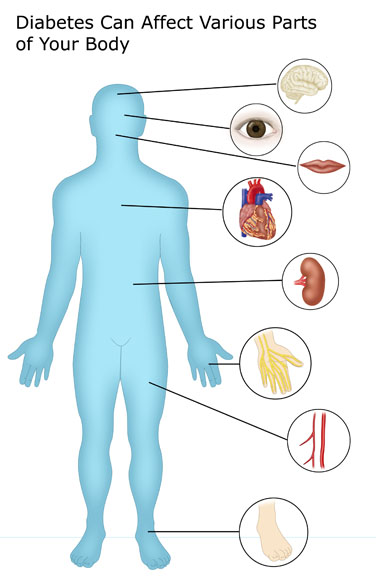High blood sugar levels, or hyperglycemia occurs in both type 1 and type 2 diabetes. When the levels are too high the result is one or two more other symptoms such as:
- frequent urination
- excessive thirst and an urge to drink large amounts of fluid
- fatigue
- blurred vision
- difficulty concentrating
- a headache

Fasting: This is where the level is higher than 130 mg/dl (7 mmol/l)
After-meal or Postprandial: A level higher than 180 mg/dl (10 mmol/l) is considered high.
This could be a signal that you:
- need a higher dose of insulin
- have forgotten to take your insulin-injection or insulin-stimulation medication
- didn't take your medication at the right time
- need to check your carbohydrate ratio; perhaps it exceeded the dose of your medication
- ate too much food generally and did not adjust your medication. The food you eat and the medication you take need to be balanced
- could be under emotional pressure, or stressed
- have an infection or are ill
- exercised less than usual
- have lost weight
- have taken another medication which has blocked the effect of your insulin medication
If you are having insulin-injections, your health care provider may need to adjust the timing or the amount of your evening dose.
To learn more information on how to take care of yourself, click here now to download my free E-book:
Answers to your Questions
Beverleigh Piepers is a registered nurse who would like to help you understand how to live easily and happily with your Type 2 Diabetes.




0 comments:
Post a Comment